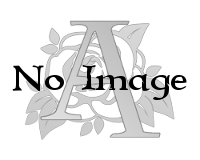Difference between revisions of "Post Exodian"
(Created page with "{{Culture |name=Post-Exodian |pronunciation=Pho-st-ex-oh-dee-an |nicknames=Exodians |origins=Exodia |races=Human |emphasis=Aristocracy, Gender Equality, Economics |languag...") |
|||
| Line 1: | Line 1: | ||
{{Culture | {{Culture | ||
|name=Post-Exodian | |name=Post-Exodian | ||
| − | |pronunciation= | + | |pronunciation=Poe-st-ex-oh-dee-an |
|nicknames=Exodians | |nicknames=Exodians | ||
|origins=[[Exodia]] | |origins=[[Exodia]] | ||
Revision as of 23:06, 7 July 2019
| Post-Exodian | |
|---|---|

| |
| Culture | |
| Pronunciation | Poe-st-ex-oh-dee-an |
| Nicknames | Exodians |
| Origins | Exodia |
| Races | Human |
| Emphasis | Aristocracy, Gender Equality, Economics |
| Languages | Common |
| Major Cities | Rivera, Redemption City, Battalia, Fairwind Harbor |
lorem ipsum
Contents
History
Society
Naming Customs
Family Structure
Gender Roles
Both genders have equivalent standing and occasionally interchange roles. Men usually work while women assume domestic roles, but while men are expected to assume working responsibility women are not barred from taking up work. In the military field, it is somewhat uncommon but not impossible to encounter female knights and soldiers. In the noble stratum, women are almost always expected to marry via arranged marriage and assume a domestic role. This is due to the prospective power gain provided by forming ties with other noble families and achieving political alliances. Noble families cannot afford their female heirs assuming a working role for this reason. In the royal stratum the aforementioned noble customs may not apply and depending on the nation it is entirely possible for the ruling position to be matriarchal or patriarchal.